Search Results for: Meghan Lapp
Sea to Table – Meghan Lapp to speak in Stonington July 27
Click on the notice to increase the size, if you are having trouble reading it.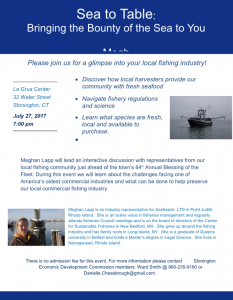
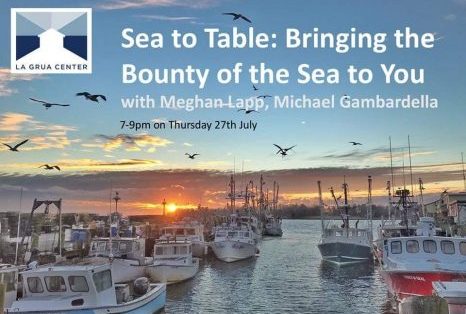
Sea to Table: Bringing the Bounty of the Sea to You With Meghan Lapp, and Michael Gambardella
Open to the public and free of charge. For more information, please contact the Town of Stonington Economic Development Commission at 860-235-9180. The La Grua Center is located at 32 Water St., Stonington, CT. lagruacenter.org 22:37
Meghan Lapp: Herring face no danger from fishing
 The July 12 Associated Press article “There’s a herring boom off our coast” unfortunately misled readers about herring stock size and commercial harvest levels. There is not a “catch boom” in New England — far from it. Contrary to the article’s statement that 2014 harvest levels were unusually high, the 2014 fishing mortality rate (which is a comparison of the harvest level to the stock size) was at its lowest level since 1965. That is, commercial harvest rates of herring are at their lowest in a 50-year time period. Read the rest here 14:22
The July 12 Associated Press article “There’s a herring boom off our coast” unfortunately misled readers about herring stock size and commercial harvest levels. There is not a “catch boom” in New England — far from it. Contrary to the article’s statement that 2014 harvest levels were unusually high, the 2014 fishing mortality rate (which is a comparison of the harvest level to the stock size) was at its lowest level since 1965. That is, commercial harvest rates of herring are at their lowest in a 50-year time period. Read the rest here 14:22
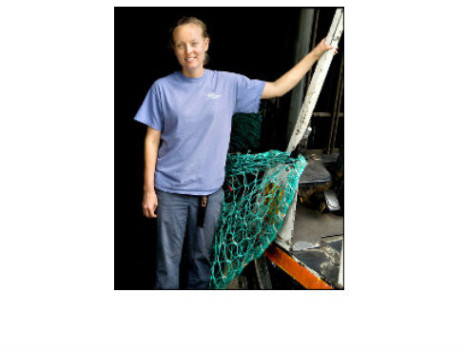
Meghan Lapp’s response to Oceana Gib Brogan’s NY Times Article “A Knockout Blow for Fish Stocks”
Unfortunately for NY Times readers, this article is full of false and misleading information. It has caused quite a stir not based on fact, but based on deliberately inaccurate statements. The article begins with a woeful tale of Atlantic cod. What it does not tell you is that just a few years ago, a 2008 assessment for Gulf of Maine cod showed that the stock was healthy, and would attain desired levels within all specified timeframes. During this time, fishermen stayed within the allowable catch levels, and even below these levels- From Seals, to Closed area’s, and the Observer Program, She lay’s it all out. Read the rest here 16:14
The Magnuson Stevens Act and its Ten Year Rebuilding Timeline: Science or Fiction? by Meghan Lapp
 Under the Magnuson Stevens Act (MSA), regional Fishery Management Councils must develop a rebuilding plan for every overfished fishery, and must “specify a time period for rebuilding . . . that shall be as short as possible . . . and not exceed 10 years . . .To read more, please click here: MSA and Its Ten Year Timeline: Science or Fiction? 18:45
Under the Magnuson Stevens Act (MSA), regional Fishery Management Councils must develop a rebuilding plan for every overfished fishery, and must “specify a time period for rebuilding . . . that shall be as short as possible . . . and not exceed 10 years . . .To read more, please click here: MSA and Its Ten Year Timeline: Science or Fiction? 18:45
The Magnuson Stevens Act and it’s Ten Year Rebuilding Timeline: Science or Fiction? By Meghan Lapp
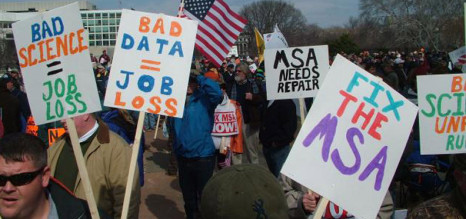 The arbitrary nature of a ten year rebuilding requirement is not a new issue. No scientific basis or analysis was involved at all in choosing a period of ten years. The requirement was a purely political decision. In fact, there are no scientific grounds for justifying any specific value as a standard for a fish stock rebuilding time. For the past several years, scientists, fishermen and Congress have highlighted the need for reconsideration of this provision. Read more here 13:44
The arbitrary nature of a ten year rebuilding requirement is not a new issue. No scientific basis or analysis was involved at all in choosing a period of ten years. The requirement was a purely political decision. In fact, there are no scientific grounds for justifying any specific value as a standard for a fish stock rebuilding time. For the past several years, scientists, fishermen and Congress have highlighted the need for reconsideration of this provision. Read more here 13:44
Your View: Bullard has a responsibility to the law – Meghan Lapp
In recent weeks, with utter destruction facing the New England groundfish fleet, newly appointed NOAA Regional Administrator John Bullard, whom it was hoped by many would be a responsive voice of reason in the midst of governmental and scientific uncertainty and chaos, has instead used it to further demean and dismantle this nation’s hardworking families. Read more here
Meghan Lapp, Jim Kendall, Speak about New England’s Ground Fish situation.
The New England fishing business has been hurting for years as catching limits continue to decrease sharply. Read more – video

Fishermen in NCLA Video Explain the Need to Reel in NOAA’s at-Sea Monitor Rule
The New Civil Liberties Alliance released a video today outlining why it is unconstitutional to force Atlantic herring fishermen to fund government-mandated monitors at sea. It is “the equivalent of having a cop in your car who’s policing you while you drive, and you have to pay his salary out of your own pocket,” said Meghan Lapp, Fisheries Liaison & General Manager for Seafreeze, Ltd. about the rule being challenged in Relentless Inc., et al. v. U.S. Dept. of Commerce, et al. NCLA, a nonpartisan, nonprofit civil rights group, represents these private fishing companies,,, The at-sea monitor mandate, issued in 2018, is unlawfully “industry-funded.” >click to read< 08:50
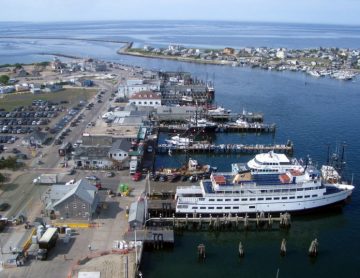
R.I., feds spending $5.2 million to rebuild 3 sagging piers at Port of Galilee
The Port of Galilee is an economic engine for Rhode Island, bringing in $66 million in seafood last year and supporting 200 commercial fishermen and other businesses in the fishing industry. But Rhode Island’s largest fishing port has been looking the worse for wear for a long time now. Bulkheads are rotting, piers are sagging and asphalt is crumbling. In the latest effort to address the problems, the state is set to begin work on a $5.2-million project to rebuild three 40-year-old piers,, No matter how much is invested in dockside facilities to process and package seafood, if the piers aren’t up to par, it makes it difficult to offload the catch, said Meghan Lapp, general manager of Seafreeze Shoreside,,, “The docks are the lifeblood of the port,” she said. >click to read< 10:41
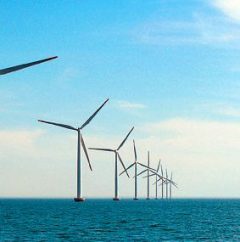
New England: Fishing Industry and offshore windfarmers no closer to finding solutions
The National Marine Fisheries Service and the National Oceanic and Atmospheric Administration, had refused to endorse BOEM’s draft EIS for Vineyard, complaining that fishing concerns were not addressed adequately. This helped trigger the government’s ongoing analysis of offshore wind’s cumulative impacts in the region.,, In public comments on the USCG port-access study, Meghan Lapp, fisheries liaison for frozen fish supplier Seafreeze, a subsidiary of Spain-based conglomerate Grupo Profand, called for the lanes.,, Lapp also called for an assurance of maritime safety that she said would be compromised by radar interference from wind turbines. >click to read< 08:34
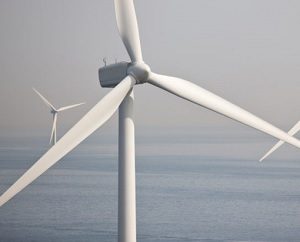
Proposed Customs and Border Protection Modifications Will Weaken the Jones Act
By Meghan Lapp – The Jones Act, or Merchant Marine Act of 1920, has been the foundation of U.S. maritime commerce for 100 years, requiring coastwise trade, i.e. transport of merchandise between two U.S. points, to be conducted on U.S.-flagged, U.S.-owned, U.S.-built vessels, which must be crewed by a minimum of 75% U.S. citizens and/or permanent U.S. residents.,,, On October 23, 2019, Customs and Border Protection issued a bulletin, “Proposed Modification and Revocation of Ruling Letters Relating to CPB’s application of the Jones Act to the Transportation of Certain Merchandise and Equipment Between Coastwise Points” (see page 12). >click to read< 14:35
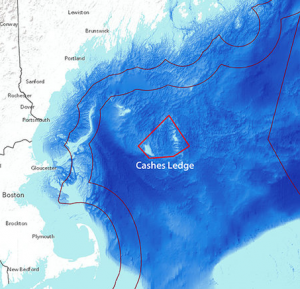
Offshore Wind Farm’s Meteorological Tower To Be Constructed Next Month; Officials Express Concerns At Public Hearing
A 300-foot-plus meteorological tower will be installed about 17 miles off the coast of Ocean City next month in advance of the US Wind offshore wind farm project.,,,“It was a public hearing, but there weren’t a lot of people there because I don’t think there was a lot of notice about it,” he said. “There were some commercial fishermen there and they’re very concerned about the pounding of the pilings. “The commercial fishermen that fish for conch and lobsters and clams etc. are very concerned about losing equipment,” he said. “They are also concerned about the construction and noise scaring off fish and scaring their catch away. That was very evident during that meeting.” >click to read<15:42
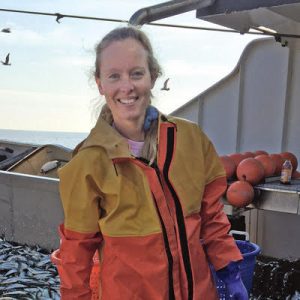 Offshore Wind Projects’ Impact on Fishing Grounds off the Ocean City Coast Discussed – July 18, 2018, After hearing a strong presentation from a noted expert on the impacts of wind farms on commercial fishing, the Mayor and Council seem inclined to strengthen opposition to the wind farms off the resort coast in general.,, Monday’s presentation was spearheaded by Meghan Lapp, who is the fisheries liaison for Seafreeze Ltd., >click to read<
Offshore Wind Projects’ Impact on Fishing Grounds off the Ocean City Coast Discussed – July 18, 2018, After hearing a strong presentation from a noted expert on the impacts of wind farms on commercial fishing, the Mayor and Council seem inclined to strengthen opposition to the wind farms off the resort coast in general.,, Monday’s presentation was spearheaded by Meghan Lapp, who is the fisheries liaison for Seafreeze Ltd., >click to read<
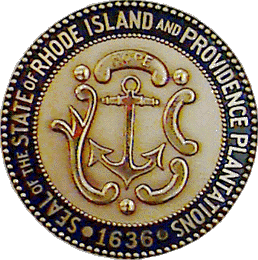
R.I. Senate Resolution – Recognizing the Value on the states rich maritime and fishing history
2019 — S 0744
========
LC002270
========
S T A T E
O F
R H O D E I S L A N D
IN GENERAL ASSEMBLY
JANUARY SESSION, A.D. 2019
____________
S E N A T E R E S O L U T I O N
RECOGNIZING THE VALUE ON THE STATE’S RICH MARITIME AND FISHING
HISTORY, AND SUPPORTING EFFORTS TO MAINTAIN AND ENSURE THE SUCCESS OF RHODE ISLAND’S SEAFOOD INDUSTRY
Introduced By: Senators Sosnowski, McCaffrey, Algiere, Felag, and Euer
Date Introduced: April 03, 2019
Referred To: Recommended for Immediate Consideration
1 WHEREAS, According to the University of Rhode Island’s 2018 Economic Impact of
2 Rhode Island’s Fisheries and Seafood Sector report, “Rhode Island’s Fisheries and Seafood Sector
3 includes commercial fishing and shellfishing, fishing charters, processing, professional service
4 firms, retail and wholesale seafood dealers, service and supply firms, and tackle shops. Including
5 spillover effects across all sectors of the Rhode Island economy, the total economic impact of the
6 Rhode Island Fisheries and Seafood Sector was 4,381 jobs and $538.3 million in 2016”; and
7 WHEREAS, The state’s fishing community is a major partner in ensuring the health of
8 Rhode Islanders by providing fresh local seafood, which is an excellent source of protein and
9 important minerals, and helps to lower cholesterol and heart disease; and
10 WHEREAS, The state’s fishers are environmentalists who work tirelessly to sustain our
11 oceans, which produce half of the oxygen we breathe and are instrumental to the capture of
12 carbon dioxide; and
13 WHEREAS, Rhode Island has a rich, deep history and connection with the Atlantic
14 Ocean both in times of peace and in times of war. Settlers to Rhode Island have been fishing in
15 the Atlantic Ocean off Rhode Island’s coast for nearly 400 years, since the 1600s; and
16 WHEREAS, Rhode Island was the first state in the country to produce an ocean SAMP, a
17 Special Area Management Plan, which is an achievement widely celebrated and often referenced
18 nationally. The years of study and work that went into that pioneering ocean management plan,
19 which is an enormous source of pride to all of Rhode Island, must be followed and continued; and
3
1 WHEREAS, Squid is Rhode Island’s top landed fish, with more than 119 Rhode Island
2 fishing vessels landing more than 22 million pounds each year. Rhode Island squid landings alone
3 are valued at more than $28 million annually for this one species of fish; and
4 WHEREAS, Galilee is the number one port for longfin squid landings on the entire East
5 coast; and
6 WHEREAS, In 2015, Rhode Island landed 16 million pounds of squid while the state
7 with the second highest landings was New York, with 4 million pounds. In addition, squid is not
8 a state-restricted fish; out-of-state boats also come to Rhode Island with their squid catch because
9 of the processing facilities located here in Rhode Island; and
10 WHEREAS, Rhode Island’s seafood processing facilities include the largest supplier of
11 calamari in the United States. These seafood processing facilities also contribute millions of
12 dollars to the state’s economy. Rhode Island squid is shipped and enjoyed all over the world
13 because of the seafood processing facilities; and
14 WHEREAS, Along with the State’s fishing history, the $538 million per year and the
15 nearly 4,400 jobs from Rhode Island’s seafood industry are vital statistics to keep in mind as the
16 State moves forward and uses the ocean for energy development. While Rhode Island has
17 strongly embraced the new-to-the-United States offshore wind industry and the approximately
18 100 jobs it should bring to the Rhode Island area, it is also essential to be vigilant in protecting
19 and maintaining the State’s fishing and seafood industry and with it the history and future
20 sustainability of fresh, local, healthy sources of protein for all; now therefore be it
21 RESOLVED, That this Senate of the State of Rhode Island and Providence Plantations
22 hereby supports and places a premium value on the state’s rich maritime and fishing history, and
23 will continue to work to maintain and ensure the success of Rhode Island’s seafood industry; and
24 be it further
25 RESOLVED, That this Senate hereby respectfully requests the Governor, the state
26 agencies and the CRMC to act in support and furtherance of Rhode Island’s commercial fishing
27 industry and to do everything in their powers to work to ensure the existence, and the success, of
28 Rhode Island’s commercial fishing fleet and, at a minimum, that they do no harm; and be it
29 further
30 RESOLVED, That the Secretary of State be and hereby is authorized and directed to
31 transmit duly certified copies of this resolution to the Honorable Gina Raimondo, Governor of the
32 State of Rhode Island, Grover Fugate, Executive Director of CRMC, Meghan Lapp, Fisheries
33 Liaison for Seafreeze Ltd., James R. Fox, President, Sea Fresh USA, Inc., Noah Clark, Founder
34 of The Town Dock, Anna Malek Mercer, Executive Director, Commercial Fisheries Research
1 Foundation, and Richard L. Fuka, President of the Rhode Island Fisherman’s Alliance.
========
LC002270
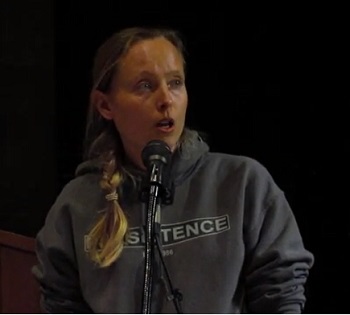
Rhode Island Approves Vineyard Wind Project, but, the fishing industry sure don’t like it.
The offer to compensate Rhode Island fishermen harmed by the latest offshore wind project was disliked by just about everyone in the packed auditorium, but the deal was ultimately approved for fear it might slip away. “We’ve been backed into a corner. Is there a way out of it? No,” said Grant Moore, fisherman and president of the Atlantic Offshore Lobstermen’s Association.,, Meghan Lapp from fish processor Seafreeze Ltd. of North Kingstown and Point Judith submitted a petition signed by 170 workers in the commercial fishing industry who oppose the compensation plan. Various video’s, >click to read<13:54
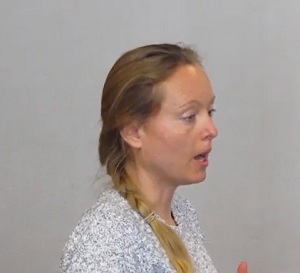
Fishermen Approve Controversial Compensation Deal
“Many of the commercial fishermen gathered at the Holiday Inn on Route 1 were displeased with the agreement. Dockside buyers of seafood felt excluded from the process and wanted compensation for the loss of squid and other seafood moving through their fish houses. Meghan Lapp, fisheries liaison for Seafreeze Ltd., which owns four fishing boats and two processors at Davisville Pier in North Kingstown, said the new offer was only made known two days earlier and the fishing industry needs to comment. “There has been no public meeting that has heard public comment on the proposal that is before the FAB today,” Lapp said before Dellinger cut her off.” (Go to minute mark 24 to watch). Fishermen who showed up were not allowed to speak. Their livelihoods are on the line and they weren’t given the time of day. The FAB finalized negotiations with Vineyard Wind on Feb 15 and CRMC signed on Feb 21, without anyone knowing. The final documents were made public on Feb 22, and this meeting took place on Feb 23. >Video, click to read<09:19
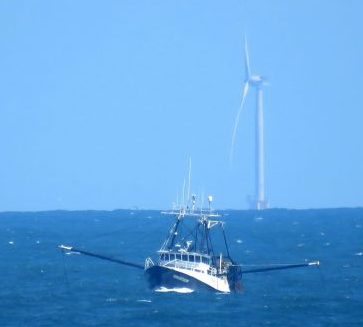
Squid fishermen in Narragansett concerned about offshore wind farm
With calamari being Rhode Island’s official appetizer, there’s no doubt squid is a lucrative industry in the Ocean State. Ask a group of squid fishermen what it’s worth and they’ll be the first tell you that it’s priceless. Then they’ll say it’s worth about $1.2 billion. However, those fishermen and the fish houses that process and freeze the squid are concerned about an offshore wind farm that will be built in the waters where they make their livelihood. “Getting the public aware of what is potentially happening to their food source is crucial,” said Meghan Lapp of Fisheries Liason of SeaFreeze Limited, one of the many fish houses in Narragansett. >click to read<18:18

Fishing industry says it doesn’t endorse Vineyard Wind’s ‘consensus plan’ for transit lanes
The fishing industry said Vineyard Wind distorted its words on Monday. A release by Vineyard Wind said the offshore wind company endorsed a “consensus” transit corridor plan supported by the fishing industry, but multiple people within the fishing industry told The Standard-Times they didn’t support or endorse the plan. The consensus within the industry is a 4-mile wide transit lane. Vineyard Wind’s endorsed plan called for 2-mile wide corridors. “It’s frustrating for the fishing because we’re coming with options even though we’re losing tremendous ground and we’re losing a lot of traditional transit (lanes),” said Meghan Lapp, a fisheries liaison for Seafreeze Ltd. “But we’re still trying to come to the table to make something work and in light of this press release, it doesn’t really seem like it’s being reciprocated.” >click to read<09:46

Bay State Wind alters layout for offshore wind farm, but fisheries call foul
Bay State Wind LLC is changing the turbine layout of its 800-MW Bay State Offshore Wind Project to accommodate the U.S. commercial fishing industry’s ability to work between turbines. But fisheries say the changes are too little, too late and underscore their growing frustration with the offshore wind sector. However, the commercial fishing industry is not satisfied with Bay State Wind’s changed layout. Meghan Lapp, fisheries liaison for Rhode Island-based frozen seafood producer Seafreeze Ltd., said one-mile-wide transit lanes can make it dangerous for trawl vessels to fish with their nets without hitting other boats or project infrastructure. Buffer zones for each side of a transit lane are also needed due to potential radar interference from the turbines. >click to read< 09:48

Why the fishing industry is against offshore wind farms near Ocean City
Representatives say wind farms could cause harm by driving marine wildlife away, disturbing the ocean environment and making navigation more difficult for fishers and mariners. “Now with the current offshore wind leasing process, we have these fishing grounds being sold right out from under us,” said Meghan Lapp during a recent presentation to the Ocean City Town Council. But marine biologists and wind farm officials say the impact won’t be that severe. “I think they took an emotional approach to the problem. … So there was some degree of misinformation,” said Salvo Vitale, general counsel for U.S. Wind, one of the offshore wind energy companies involved in the Maryland project. The town’s officials feel very strongly that this project was misrepresented to them because the size of the wind turbines has increased since the initial proposal,,, >click to read<10:18

Offshore Wind Projects’ Impact on Fishing Grounds off the Ocean City Coast Discussed
After hearing a strong presentation from a noted expert on the impacts of wind farms on commercial fishing, the Mayor and Council seem inclined to strengthen opposition to the wind farms off the resort coast in general.,, Monday’s presentation was spearheaded by Meghan Lapp, who is the fisheries liaison for Seafreeze Ltd., a Rhode Island-based company that is the largest producer of sea-frozen fish on the east coast. The highly-decorated Lapp also serves on numerous fishery management councils up and down the east coast including the mid-Atlantic region. Joining Lapp during Monday’s presentation to the Mayor and Council were a handful of local commercial fishermen, most of whom have been working the seas off the Ocean City coast for generations. >click to read<09:46

Offshore wind topic blows back onto Ocean City agenda
Offshore wind farms near Ocean City’s coast will again come up for discussion at Monday’s Town Council meeting. Meghan Lapp, a fisheries liaison for Seabreeze Seafreeze Ltd. in Rhode Island, will outline concerns with how wind farms may affect commercial fishing, according to the agenda document. The presentation will also feature local fisherman George Topping. The addition of wind farms could restrict fishing areas, according to the presentation outline in the agenda documents. Deepwater Wind and US Wind received approval in 2017 to construct two wind turbine projects off of Ocean City. >click to read<09:56
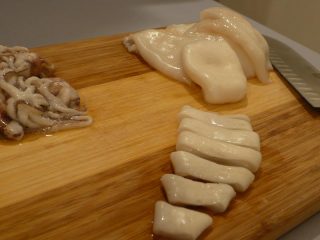
New MA Offshore Wind Farm Could Jeopardize Squid Fishery
Members of the commercial fishing community are worried a proposed utility-scale offshore wind farm in Massachusetts could impact Rhode Island’s lucrative squid industry. Massachusetts recently selected a project bid from Vineyard Wind to construct and deploy 100 turbines about 15 miles off the coast of Martha’s Vineyard in a federal wind energy area. However, Meghan Lapp, spokeswoman for a Rhode Island-based commercial fishing company called Seafreeze Ltd., said the project, which requires underwater cables to connect the project to the regional electricl grid, was sited directly through and adjacent to squid fishing grounds. >click to read<07:52
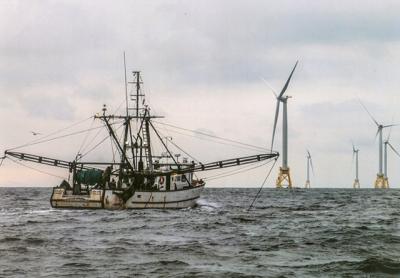
Washington must come to grips with offshore wind conflicts
Offshore wind energy developers have momentum building for them in East Coast waters. But other maritime industries want to ease up on the throttle. The federal Bureau of Ocean Energy Management recently held another round of public meetings in New Jersey and New York, gathering information for what could be a future round of lease offerings in the New York Bight. Secretary of Interior Ryan Zinke has promised to help fast track future permitting. .,,, Commercial fishermen have a case in federal court over the Statoil lease, and litigation seems certain to reignite. “We have the Magnuson Act (federal fisheries law) because we want to have American fishing grounds for American fishermen,” said Meghan Lapp, fisheries liaison for fishing company Seafreeze Ltd., North Kingstown, R.I. “BOEM is plowing ahead regardless. They have not slowed down.” >click to read<22:42
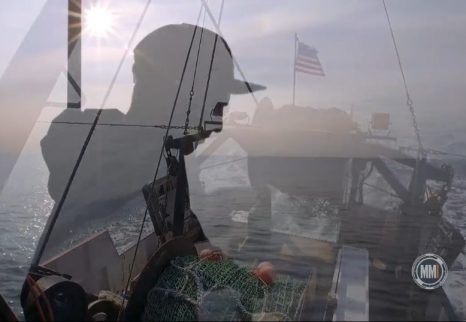
Support local seafood before it’s too late
“Fishermen are the farmers of sea,” (March 17), states fisheries liaison Meghan Lapp in the documentary “Fishing Wars: Drowning in Regulation.” Oppressive federal regulations, inaccurate science and low quotas are crushing commercial fishing in Stonington and other communities. Fish stocks are at healthy levels, yet 90 percent of seafood consumed in the U.S. is imported. And 97 percent of those imports are not inspected by the FDA. Are you worried yet? I am. >click to read< 08:18






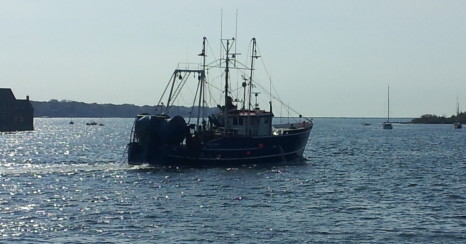
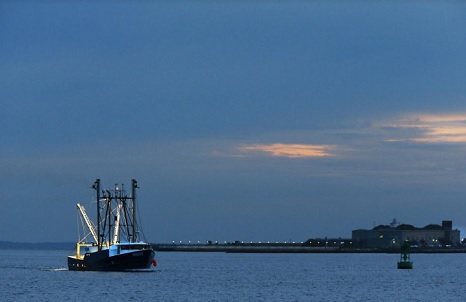



























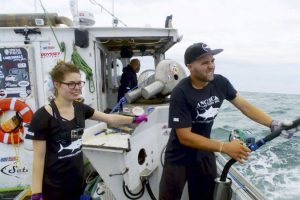
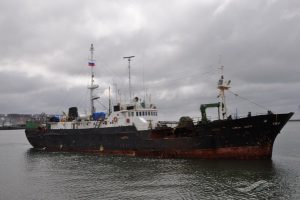
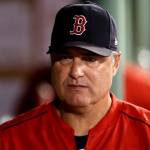
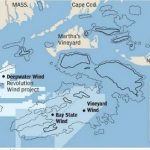
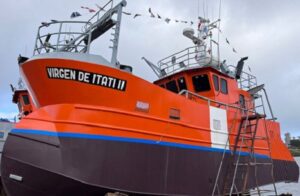

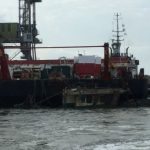
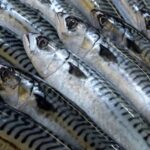
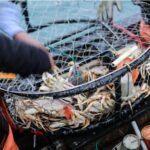
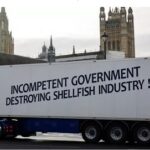



Its Deadline for Comments Day on South Fork Wind Farm Environmental Report
BOEM, which recently finished its draft environmental review of the South Fork Wind Farm, gave the public a chance to weigh in on the document at three virtual public hearings in mid-February, and is accepting further written public comment through midnight tonight… Meghan Lapp of Seafreeze Ltd. in Narragansett, Rhode Island, “Our vessels will have to fish in the area, which will be impossible if this goes through as planned,” she said, adding that the DEIS “does not contain any cumulative impact analysis” of how the offshore wind industry will affect the fishing industry. Bonnie Brady of the Long Island Commercial Fishing Association, based in Montauk, agreed with Ms. Lapp, adding,,, >click to read< 12:05
Share this post